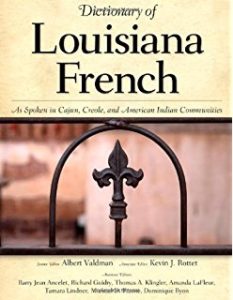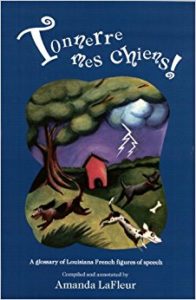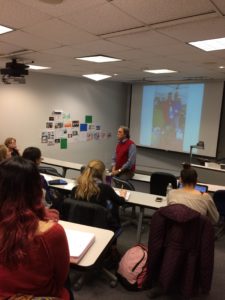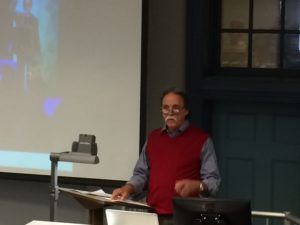Prof. Brett Brehm sat down with Nathan Rabalais to talk about his new book of original poetry in French, Le Hantage: un ouvrage de souvenance, just published by Éditions Tintamarre.
BB: I’m intrigued by the play of text and image in this book. Could you tell us how you conceived of that interplay?
NR: I think I’ve always been in touch with the visual aspect of art. Even when playing or writing music, I often imagine shapes, colors, or different contours when performing or thinking about themes and structure. This was just a great way to do it in a very explicit way and have the images accompany chapters and certain poems. It was also an opportunity to work with my brother, David, who is a fantastic photographer.
BB: Are there particular poetic traditions from which you are drawing here? Who and what were your main sources of inspiration for these poems?
Jacques Prévert has been a big influence on my style from the beginning. I’d like to think I emulate him in sort of a ‘false simplicity’ – using short and musical phrasings that often hide more complex plays on words or internal rhymes. But since I mostly write in Louisiana French, I think I’m influenced on a deeper, less obvious level by a lot Louisiana poets who paved the way for writing in our French (Deborah Clifton, Jean Arceneaux, Kirby Jambon and others).
BB: Could you tell us about the particular poetic language you are using here, and perhaps how that language relates to place?
NR: This book is very much rooted in Louisiana – in the language, the images, and overall esthetic. I try not limit myself to strictly oral style of Louisiana French, since the way I speak is a product of my whole experience with French (in Canada and France). I do love finding inspiration in the Dictionary of Louisiana French (2010) and finding words that remind me of my childhood or words I’ve never seen. I think we can do these words honor by reviving them and using them in new poems. To me, that’s the best way of appreciating immaterial heritage and culture – to keep using it and make it relevant.
BB: I’ve never heard the word ‘hantage’ before… is it a Louisiana French word?
I actually made this word up! It’s based on hanter (to haunt, frequent, return). There is a word in French hantise that has a similar connotation, but I’ve noticed that Louisiana French has a certain affinity for using –age at the end of verbs to make them nouns. For example, I’ve heard words like parlage (speaking), dormage (sleeping, slumber). It’s fascinating. And since my book is about how memory is processed, often without our even choosing to process it, I organized the book into chapters, each one related to a step of that process. That’s why there is a lot of imagery of waves and water in the book; it becomes a symbol of memories or feeling coming and going in their own time.
BB: Merci, Nathan!
NR: Merci à toi!






































